Piano tuning is a specialized field dedicated to ensuring that pianos are kept in optimal playing condition. Tuning involves adjusting the tension of the piano strings to ensure that each note produces the correct pitch. Today, we’re tackling a common query among piano owners: How much does it cost to tune a piano?
In this guide, we’ll cover everything you need to know about piano tuning, including piano tuning cost, the factors influencing the cost, and also insights to help you budget effectively while keeping your piano in pristine condition. Let’s dive in!
How much does it cost to tune a piano?
On average, the cost of piano tuning typically ranges between $50 to $100 for a basic tuning job. Piano tuning cost can indeed vary depending on factors such as its type, size, and complexity of its internal mechanisms. If your piano hasn’t been tuned in a while or is significantly out of tune, also expect the price to be higher.
Here are several factors that can influence the piano tuning cost.
Type of Piano
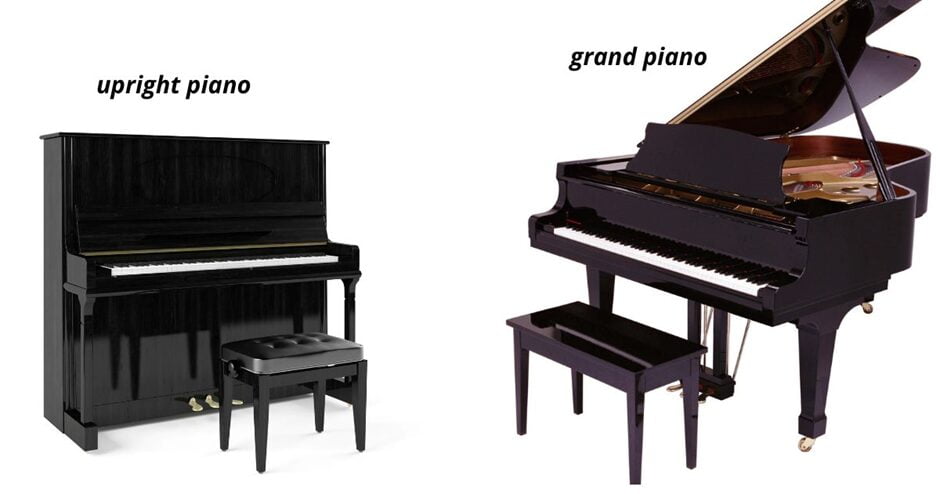
The type of piano can significantly impact tuning costs. Grand pianos, especially concert grand pianos used in professional settings, tend to be more expensive to tune due to their larger size and more complex internal mechanisms. Upright pianos, being smaller and simpler in design, usually have lower tuning costs.
Size and Complexity
The size and complexity of the piano play a crucial role in determining tuning costs. Larger pianos, such as concert grand pianos or baby grand pianos, typically have more strings and internal components. Tuning these instruments requires more time, effort, and expertise, thus resulting in higher costs compared to smaller upright pianos.
Condition of the Piano
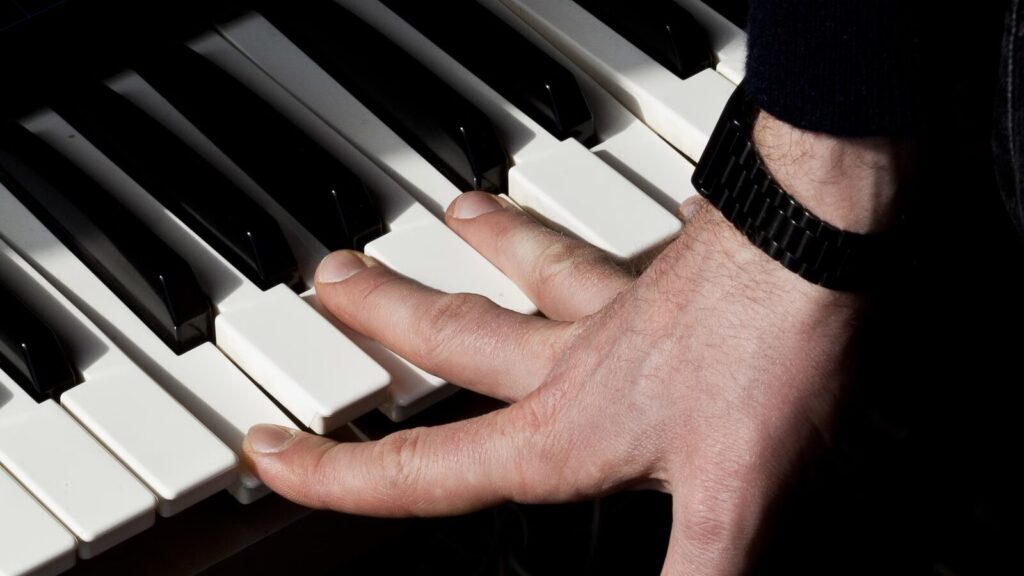
The condition of the piano also affects tuning costs. If the piano has not been regularly tuned or has significant issues such as broken strings, loose tuning pins, or worn-out parts, additional time and effort may be required to bring it back to proper tuning. Consequently, the tuning cost may be higher for pianos that require more extensive repairs or adjustments.
Frequency of Tuning
Pianos that are tuned regularly tend to maintain their pitch and stability better than those that are tuned infrequently. If a piano has not been tuned for an extended period, it may require more time and effort to bring it back to proper tuning, resulting in higher costs. Regular tuning helps to prevent significant pitch deviations and ensures that minor adjustments suffice, keeping the overall tuning cost lower over time.
Additional Services
Piano tuning costs may also vary based on any additional services or repairs required. For example, if the piano technician identifies issues such as broken strings, damaged hammers, or sticky keys during the tuning process, the cost may increase to cover the necessary repairs.
Overall, various factors such as size, condition, frequency of tuning, location, and additional services can influence the final cost. It’s essential to consult with a qualified piano technician to assess your piano’s specific needs and get an accurate estimate for tuning services.
Why tuning your piano regularly is so important?
Consistent piano tuning isn’t just a task; it’s a key investment in preserving your instrument’s vibrant sound and playability. Keeping those strings finely tuned not only maintains pitch accuracy but also elevates your musical journey by ensuring every note resonates with clarity and richness.

Maintaining Musical Integrity
Regular piano tuning is essential to ensure the instrument maintains its musical integrity. Over time, the tension in the piano strings changes due to factors like temperature, humidity, and playing frequency. Tuning helps to restore the correct pitch and harmony, allowing the piano to produce its rich and resonant sound.
Preventing Damage
In addition to preserving the quality of sound, regular tuning can prevent potential damage to the piano. When the strings are not in tune, excessive tension can be exerted on various components of the piano, leading to structural issues. By keeping the piano properly tuned, you can prolong its lifespan and prevent costly repairs.
How often should I have my piano tuned?
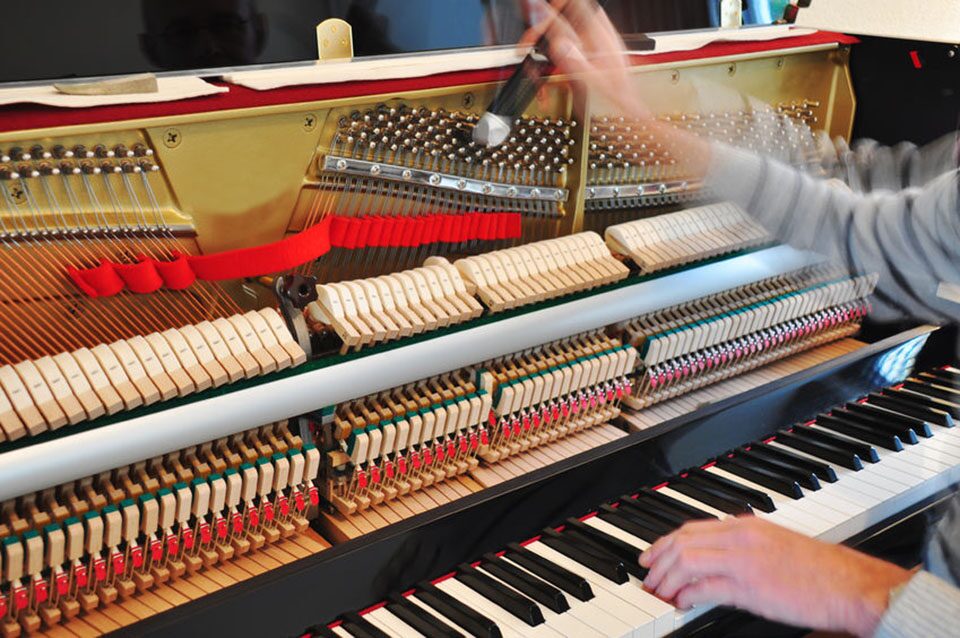
Regular tuning is essential to maintain the pitch and playability of pianos. Piano manufacturers typically advise tuning your new piano four times during its first year, followed by semiannual tuning thereafter to ensure they stay in tune and produce the correct notes. This frequency is especially crucial during the first year after purchase, as piano strings tend to stretch significantly during this period.
At the very least, it’s recommended to tune your piano annually, unless your home experiences significant humidity fluctuations or the instrument is used intensively by an advanced pianist.
Additionally, if you’ve recently moved, it’s wise to allow your piano approximately three weeks to adjust to the climate of its new surroundings before scheduling a tuning session. This ensures greater accuracy during the next professional tuning appointment. By adhering to this tuning schedule, pianos can maintain their pitch stability and provide consistent sound quality for years to come.
How to Tell if You Need Piano Tuning?
Is your piano sounding a bit off-key lately? It might be time for a tune-up! Look out for signs like inconsistent pitch or unusual buzzing noises to know when your piano needs professional tuning.
Uneven Sound
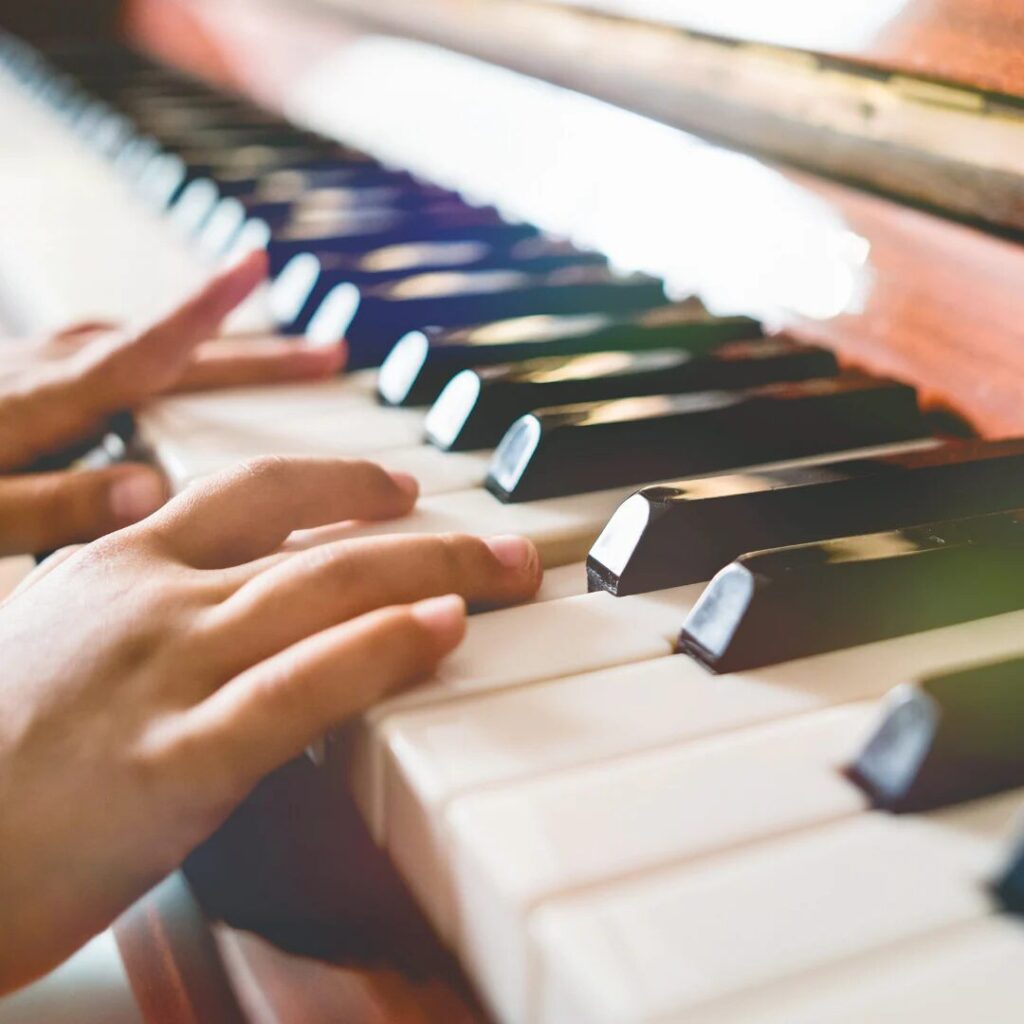
One of the most apparent signs that your piano requires tuning is when the sound produced is uneven or dissonant. If certain notes sound off-key or out of tune compared to others, it is a clear indicator that the piano needs professional tuning.
Frequency of Use
The frequency with which the piano is played also affects its tuning stability. Pianos that are used frequently, such as in music schools or performance venues, may require more frequent tuning compared to those used in private homes. Monitoring the usage patterns can help you determine when tuning is necessary.
Environmental Factors

Environmental conditions play a significant role in the tuning stability of a piano. Fluctuations in temperature and humidity can cause the wooden components of the piano to expand or contract, affecting the tension in the strings. If your piano is exposed to extreme environmental conditions, it may require more frequent tuning to compensate for these changes.
Time Since Last Tuning
It is generally recommended to tune a piano at least once or twice a year, even if it is not being played regularly. If it has been more than a year since your last tuning appointment, it is advisable to schedule a tuning session to ensure the piano remains in optimal condition.
Professional Assessment

If you are unsure whether your piano needs tuning, it is best to consult with a professional piano tuner or technician. They can assess the instrument’s current condition and recommend the appropriate tuning schedule based on factors such as usage, environmental conditions, and the piano’s age.
Piano Tuning Process
Initial Assessment
When you schedule a piano tuning session, the tuner will begin by assessing the current state of your instrument. This involves checking the overall condition of the piano, examining the strings, hammers, and other internal components to identify any issues that may affect the tuning process.

Pitch Adjustment
The tuner will then proceed to adjust the pitch of each string in the piano to ensure they are in harmony with one another. Using a tuning lever, the tuner will tighten or loosen the strings as needed to achieve the correct pitch for each note. This meticulous process requires precision and expertise to achieve optimal results.
Fine-Tuning

After the initial pitch adjustment, the tuner will fine-tune each note to ensure accuracy and consistency across the entire keyboard. This involves making minor adjustments to the tension in the strings to eliminate any discrepancies in pitch. The goal is to achieve a balanced and harmonious sound throughout the piano.
Testing and Evaluation
Once the tuning process is complete, the tuner will test each note individually to confirm that the pitch is accurate and consistent. They may also play various musical passages to evaluate the overall sound and responsiveness of the piano. This final step ensures that the instrument is in optimal playing condition.
Benefits of Professional Piano Tuning
Expertise and Precision

Professional piano tuners and technicians have the specialized knowledge and skills required to tune pianos effectively. They undergo extensive training and have hands-on experience working with various types of pianos, ensuring that the instrument receives the care and attention it deserves. Their expertise allows them to identify and address issues that may not be apparent to untrained individuals.
Quality Results
By entrusting your piano tuning needs to professionals, you can expect high-quality results that enhance the instrument’s sound and performance. Professional tuners use advanced tools and techniques to achieve precise tuning, ensuring that the piano sounds its best and plays smoothly. The attention to detail and craftsmanship of professional technicians can significantly impact the overall quality of the instrument.
Long-Term Savings
While professional piano tuning services may incur initial costs, they can lead to long-term savings by preventing more extensive damage or the need for costly repairs down the line. Regular maintenance help prolong the lifespan of the piano and reduce the risk of major issues that may require extensive restoration. Investing in professional care for your piano can ultimately save you money in the long run.
Comprehensive Services

Professional piano tuners and technicians offer a range of services beyond tuning, including repairs, regulation, voicing, and maintenance. Whether your piano needs a minor adjustment or a complete restoration, professionals can tailor their services to meet your specific needs. Their comprehensive approach ensures that all aspects of the piano are taken care of, resulting in optimal performance and longevity.
Customer Satisfaction
Professional piano tuners and technicians prioritize customer satisfaction by providing personalized service and attention to detail. They work closely with piano owners to understand their preferences and address any concerns they may have regarding the instrument. By delivering exceptional service and results, professionals strive to exceed customer expectations and build lasting relationships with clients.
Choosing the Right Piano Tuner
Qualifications and Experience

When selecting a piano tuner or technician, it is essential to consider their qualifications and experience in the field. Look for professionals who have received formal training in piano technology and have a proven track record of working with different types of pianos. Experienced technicians are more likely to deliver high-quality results and handle complex tuning tasks effectively.
Reputation and Reviews
Researching the reputation of a piano tuner or technician can provide valuable insights into their work ethic and customer satisfaction levels. Look for reviews and testimonials from previous clients to gauge the quality of service and results provided by the professional. A positive reputation and satisfied customers are indicators of a reliable and skilled piano tuner.
Range of Services
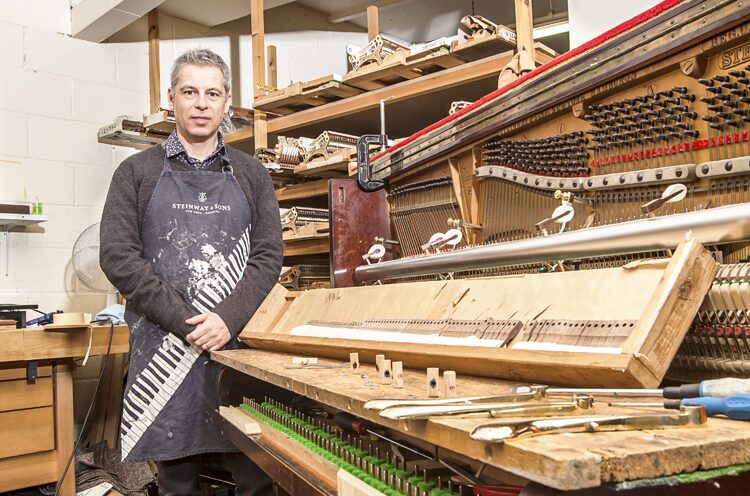
Consider the range of services offered by the piano tuner or technician to ensure they can meet your specific needs. Whether you require tuning, repairs, regulation, voicing, or maintenance, make sure the professional has the expertise and resources to provide comprehensive care for your piano. Opting for a technician who offers a wide range of services can save you time and effort in sourcing multiple providers.
Communication and Customer Service
Effective communication and excellent customer service are essential qualities to look for in a piano tuner or technician. Choose a professional who is responsive, attentive to your needs, and willing to address any questions or concerns you may have. Clear and transparent communication throughout the tuning process can help ensure a positive experience and satisfactory results.
Pricing and Scheduling
Before committing to a piano tuner or technician, inquire about their pricing structure and availability to ensure they align with your budget and schedule. Request a detailed estimate of the services needed and discuss any additional fees or charges that may apply. Additionally, clarify the timeline for the tuning work to plan accordingly and avoid any scheduling conflicts.
Conclusion
Remember, a well-tuned piano not only sounds better but also plays more smoothly and lasts longer. Regular tuning not only enhance the musical experience but also protect your investment in the instrument. Whether you are a professional musician, a dedicated student, or an avid enthusiast, taking care of your piano through proper tuning and maintenance is key to unlocking its full potential.
Maintaining a harmonious relationship with your piano involves more than just playing it; it requires dedication to its care and upkeep. By following the tips and guidelines outlined in this article, you can ensure that your piano remains in optimal condition and continues to bring joy and inspiration to your music-making endeavors. Treat your piano with the care and attention it deserves, and it will reward you with beautiful music for years to come.
Frequently Asked Questions
Can I tune my own piano?
Tuning a piano requires specialized skills, tools, and knowledge of the complex internal workings of the instrument. While there are resources available for learning how to tune a piano on your own, we strongly advise against it.
Without proper training and specialized equipment, you’re likely to cause more harm than good. It’s best to leave piano tuning to trained professionals who can ensure the job is done correctly and without risking damage to your instrument.
What happens if you don’t tune a piano for 10 years?
If you leave a piano without tuning for 10 years, it’s going to struggle to hold its tune, making it sound pretty off-key. Basically, it’ll become more of a fancy furniture piece for holding sheet music rather than something you can play. It’s like how a car without oil changes eventually becomes just a big, useless hunk of metal.
Is it worth it to tune an old piano?
Whether it’s worth tuning an old piano depends on several factors such as the piano’s quality, condition, and sentimental value. If it’s a high-quality instrument with sentimental value or potential for restoration, investing in tuning can be worthwhile. However, if it’s a low-quality piano in poor condition, such as one that has been neglected or stored improperly, it may not be worth the expense of tuning and repairs.